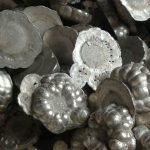Notice: Undefined index: sith_hide_share in /www/sites/alloy.wiki/index/wp-content/themes/likegoogle/single.php on line 32
Deprecated: get_settings is deprecated since version 2.1.0! Use get_option() instead. in /www/sites/alloy.wiki/index/wp-includes/functions.php on line 4862
Biomedical materials refer to materials that interact with biological systems to diagnose, treat, repair, or replace tissues, organs in the body or to enhance their functions. It can be divided into medical metal materials, medical polymer materials, medical ceramic materials, etc., among which medical metal materials occupy a large proportion, especially orthopedic products, cardiovascular and cerebrovascular products.
Especially titanium alloy with high strength, low density, non-toxic, and good biocompatibility and corrosion resistance and other properties have been used in medical field, as artificial joints, bone trauma and orthopaedic spine internal fixation system, dental implants, artificial heart valve, interventional cardiovascular stents, surgical instruments, such as medical products the first choice of materials.

Advantages of titanium alloys for medical use
(1) Biocompatibility: minimal biological reaction with the human body, non-toxic non-magnetic, as a human implant, non-toxic side effects on the human body.
(2) Mechanical properties: high strength, low elastic modulus, not only to meet the mechanical requirements, and the human body's natural bone elastic modulus similar, can reduce the stress shielding effect, more conducive to the growth and healing of human bone.
(3) Corrosion resistance: Titanium alloy is a biological inert material, in the human physiological environment has a very good corrosion resistance, no pollution to the human physiological environment.
(4) light: the general density of titanium alloy is only 57% of stainless steel, implanted in the human body to greatly reduce the human body load.
The development of medical titanium alloy
Because titanium is close to human bones, has good biocompatibility to human tissues, non-toxic side effects and incomparable advantages over other materials, medical titanium alloy has been widely used in the medical field.
As biomedical functional materials, metal materials are an important branch of material science and have been used in human implants for more than 400 years.
The biomedical titanium alloy has undergone three processes: pure titanium and Ti-6al-4V titanium alloy, improved titanium alloy and low modulus titanium alloy. 1950-1980: Pure titanium was first used in the field of biomedicine and proved to have good biocompatibility. Ti6Al4V is widely used in surgical repair or replacement materials. 1980-1990: Proved that V and Al were toxic and side-effect elements to living organisms, developed the second-generation improved medical titanium alloy that replaced V with Nb and Fe. 1990 – present: The development of Ti13Nb13Zr, the first titanium alloy with better biocompatibility and lower modulus of elasticity, in the early 1990s began the development and use of titanium alloys for biomedical applications with excellent properties.
Application of titanium and titanium alloys in medical field
In recent years, titanium and its alloys, centering on plastic surgery, dentistry and various medical devices, have gained unprecedented rapid development in the medical field.
Guest contributors are welcome at the Alloy Wiki.It is a weekly wiki and guide on alloy information and processing technology, while also about the vast array of opportunities that are present in manufacturing. Our team of writers consists of a Machining Material Supplier / Machinist / Tool and Die Maker, a Biomedical Engineer / Product Development Engineer, a Job Development Coordinator / Adjunct Professor, and a President and CEO of a manufacturing facility.
Link to this article:The web celebrity of medical materials -- titanium alloy
Reprint Statement: If there are no special instructions, all articles on this site are original. Please indicate the source for reprinting:Alloy Wiki,thanks!^^


